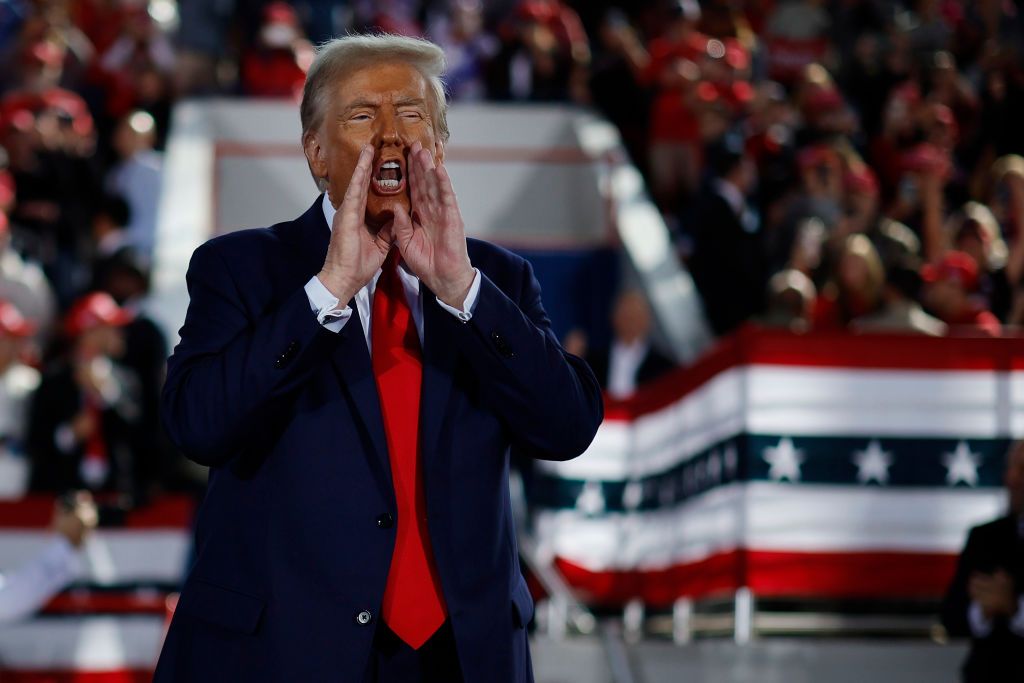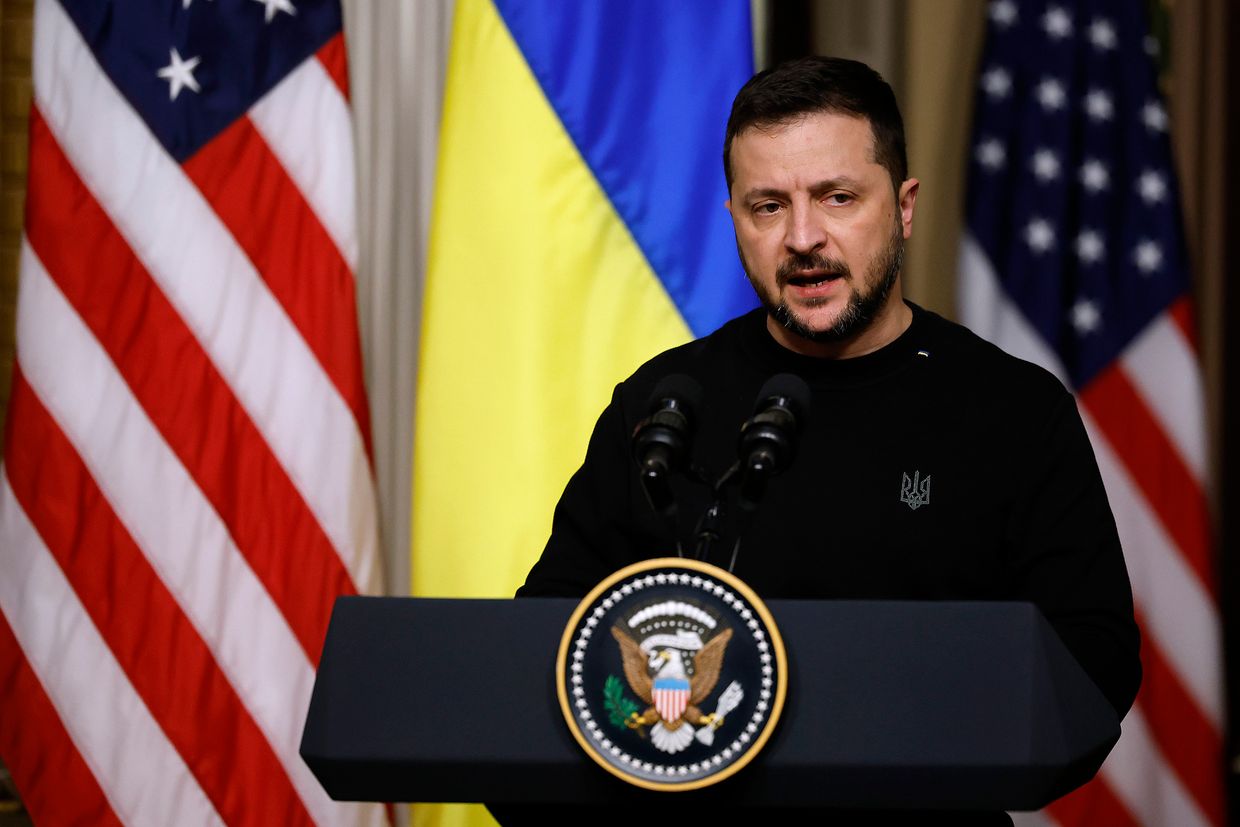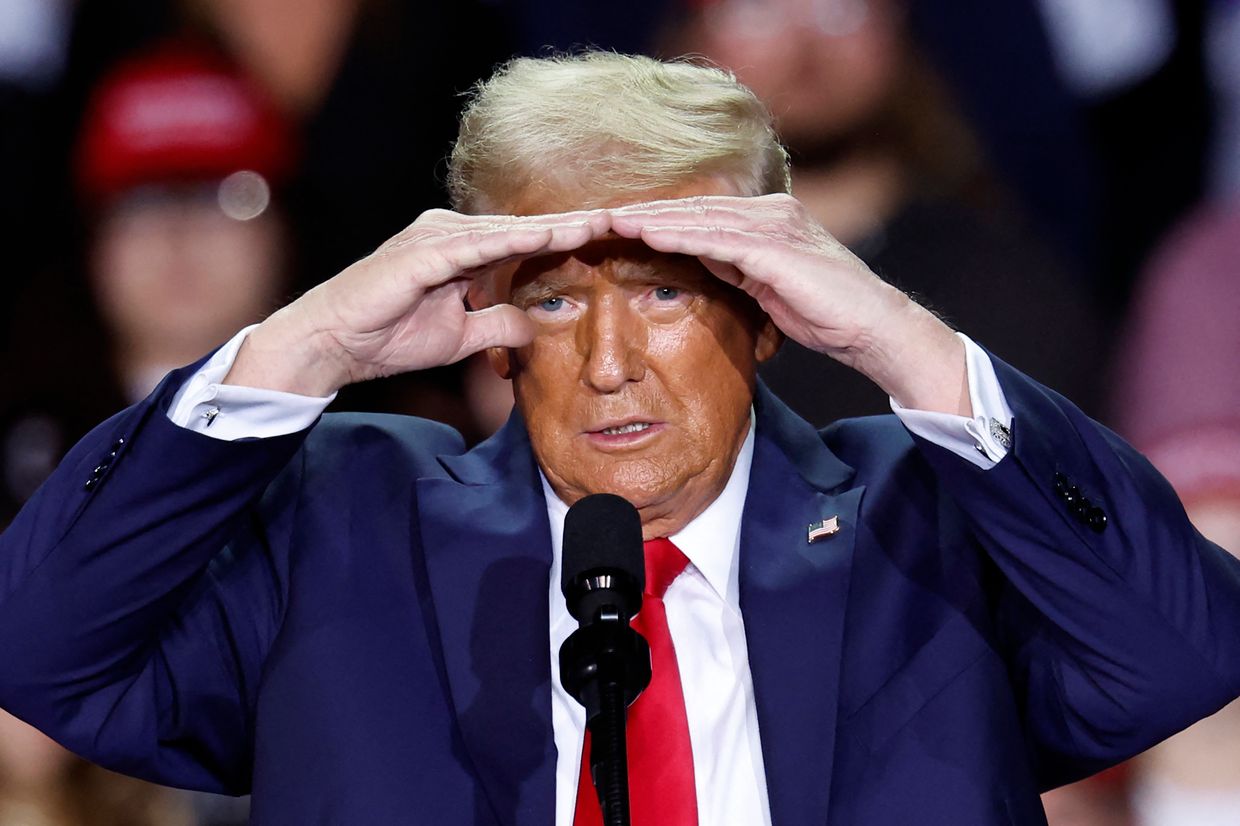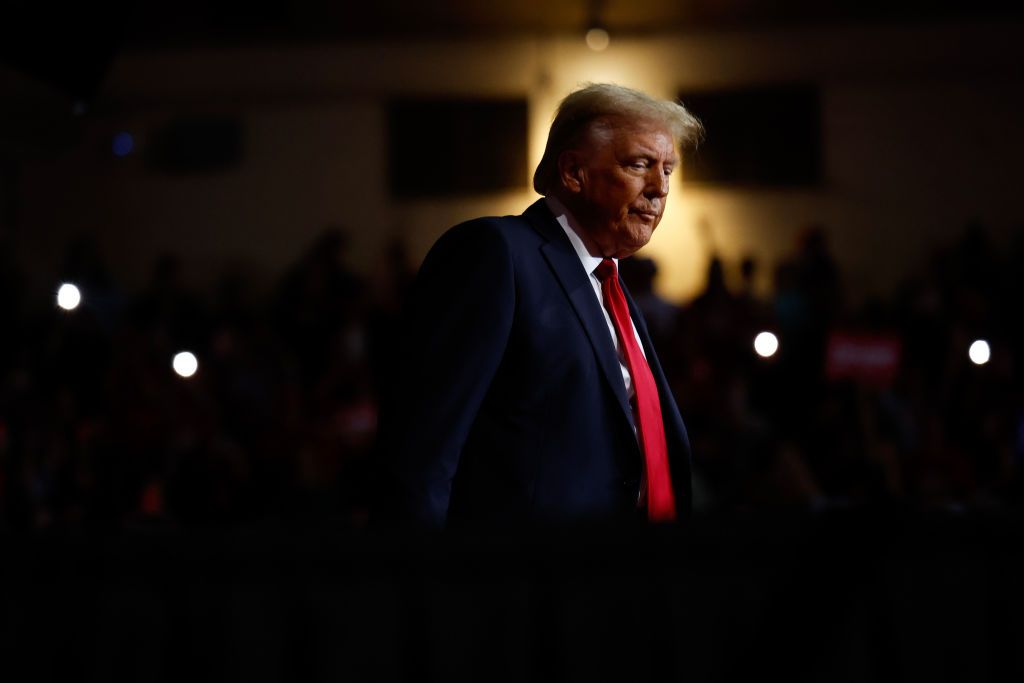Trump wins US 2024 presidential election – what this means for Ukraine
Trump's win is the culmination of one of the most consequential political contests in modern times — not least for Ukraine.

Republican presidential nominee, former U.S. President Donald Trump at a campaign rally in Raleigh, North Carolina on Nov. 4, 2024. (Chip Somodevilla/Getty Images)
Republican candidate Donald Trump claims victory in the 2024 U.S. presidential elections, foreign leaders issue messages, congratulating the former president on returning the White House.
The Republican Party will also take control of the U.S. Senate. The House election results are still being counted. This will impact how — if at all — any future aid arrives in Kyiv from Washington.
President Volodymyr Zelensky congratulated Donald Trump on his victory in the U.S. presidential election, voicing hopes for "strong bipartisan support for Ukraine in the United States."
"Congratulations, President Trump. Ready to work together as we did for four years. With your convictions and mine. With respect and ambition. For more peace and prosperity," wrote French President Emmanuel Macron.
The result is the culmination of one of the most consequential political contests in modern times — not least for Ukraine.
When Trump and Senator J.D. Vance are inaugurated as the 47th president and vice president of the U.S. on Jan. 20, Russia's full-scale war in Ukraine will be mere weeks from the 1,000 days mark.
Trump's election victory partially answers Ukraine's nervous questions about what lies ahead for the country's defense efforts as it continues to rely on support from its largest Western backer, one of the issues that most starkly separated Trump, 78, from Harris, 60.
As Ukraine struggled to contain Russian advances in Donetsk Oblast during the waning hours of the election, a consensus remained that Trump's victory would bring a more unpredictable future for U.S. support for Ukraine than if Harris — who promised to stand with Kyiv until Ukraine prevails — had been the victor.
"With Trump, the basic idea is going to be — take any deal (Russian President Vladimir) Putin gives (him), declare it a victory, and try to change the subject," Timothy Snyder, an American historian specializing in Central and Eastern Europe, told the Kyiv Independent.
"What Trump has actually said about Ukraine is not that he will try to solve the problem but rather he will essentially try to present the Ukrainians as the problem, and then punish them for defending their own country."
It is unclear how Trump's at times hostile history with Zelensky will impact the approach he takes toward Kyiv's wartime needs. In October, when Trump blamed Zelensky for Russia's invasion of Ukraine, it was just the latest installment of a fraught years-long relationship.
The first major fracture revolved around a 2019 phone call between Zelensky and then-President Trump, which occurred one week after Trump had instructed his acting chief of staff, Mick Mulvaney, to hold back almost $400 million in military aid for Kyiv.
During the call, Zelensky said he needed more aid to purchase U.S.-made weapons, in particular Javelin anti-tank missiles.
"I would like you to do us a favor, though," Trump replied, before asking Zelensky to dig up dirt on the family of his Democratic opponent, Joe Biden. Trump's request for a favor resulted in his first impeachment and a permanent stain on the two leaders' relationship.
The two have since spoken in July, and again in September when Zelensky presented Trump with Ukraine's victory plan in New York.
"We have a very good relationship," Trump said, standing next to Zelensky, "and I also have a very good relationship, as you know, with (Russian) President (Vladimir) Putin, and I think if we win I think we're going to get (the war) resolved very quickly."
Zelensky, interrupting Trump, added "I hope we," — gesturing between Trump and himself with his hand — "have better relations between us."
But in his only debate with Harris on Sept. 10, Trump refused to say he wanted a Ukrainian victory.
"I think it's the U.S.'s best interest to get this war finished and just get it done, negotiate a deal," Trump said.
Trump's plan to end the war within "24 hours" and get the U.S. "out" of Ukraine, would benefit Russia by ceding Ukrainian territory and creating autonomous regions in the east, according to reporting in October.
"Trump's view is he wants to do everything he can to help Putin because for whatever reason he likes these strong men, he's fascinated by him in particular," Evelyn Farkas, the executive director of the McCain Institute, said in an interview with the Kyiv Independent.
"So, it will take all the will and the fighting of people under him to maintain the existing policy of support for Ukraine and an opposition to Russia's autocratic agenda."
If Trump does slash U.S. aid to Ukraine, the American economy will take a hit. The U.S. defense industrial base has received over $50 billion in investment due to America's support of Ukraine, with billions sent to states that helped Trump secure the White House again like Arkansas, Alabama, and Florida.
"Trump and Vance have made getting assistance to Ukraine difficult," Representative Gregory Meeks, the highest-ranking Democrat on the House Foreign Affairs Committee, said in a statement to the Kyiv Independent.
"We have no indication their approach will change, but a Democratic-controlled Congress can work across the aisle to push for that support."
Putin's 'cheerleader' or Kyiv supporter?
"Trump played a critical role in inviting Putin’s aggression in 2022," Alexander Vindman, Trump’s former director for European affairs at the National Security Council (NSC), told a crowd of Ukrainians for Harris in Philadelphia.
"It's because Trump was a cheerleader for Putin … (so he) felt emboldened to launch the war. We're looking at a world in which Trump and J.D. Vance, the worst vice presidential candidate you could possibly think of, not just for Ukraine but for European security, will be able to do and initiate enormous amounts of harm to Ukraine."
Boris Johnson, the former British prime minister who’s been one of Kyiv’s loudest advocates, said in an interview with CNN on Nov. 4 he doesn't think Trump will abandon Ukraine, citing the Javelin missiles Trump approved for Ukraine in 2017 as supportive evidence.
"There are folks that believe Trump is better for Ukraine — he is not. This narrative that he was somehow the one that provided military aid, that's not entirely true," Vindman, Trump's former Director for European Affairs at the NSC, said.
"It was the adults in the room around him that really counseled the provision of aid, these folks do not exist any longer and would not be a part of a second Trump administration."
Along with Snyder, voters in the Ukrainian diaspora who spoke with the Kyiv Independent said they're aware of many Ukrainian Americans who believe Trump was the better candidate for Ukraine, citing his appearance of power and strength.
Snyder believes this argument has a gendered undertone as it primarily comes from men who didn’t want to see a female in the White House.
"This is a big argument, it goes like this; Trump is strong and therefore Trump will make America strong, and therefore America will be able to solve all of its foreign policy problems including Ukraine," Snyder said.
"It's a way to rationalize what Trump explicitly says about Russia and Ukraine because it's a big narrative about strength which allows you to forget the details, which are that Trump is historically not at all strong vis-a-vis Putin, he's extremely submissive."
Trump's victory comes after the Harris campaign deliberately sought the vote of Ukrainian Americans with a message of security for all of Eastern Europe. However, even within the diaspora, a common argument that boosted Trump to victory is that the Democratic party is too close to communism, according to a Harris-supporting Ukrainian American, Marta Fedoriw, who spoke with the Kyiv Independent and said she hears this from her Republican neighbors in Pennsylvania.
The Trump campaign played into this throughout the campaign, with Trump himself referring to Harris as "a Marxist, communist, fascist, socialist."
"This is a deliberate manipulation of trauma," Snyder said, adding that this rhetoric had the power to potentially impact thousands of voters from other Eastern European diasporas.
"It's perfectly understandable for Ukrainians to be traumatized by communism."
Biden's last moves
For the Ukrainians who are fearful that Trump's term will spell the end of American support for Ukraine, President Biden has nearly three months to cement his decades of foreign policy experience on a legacy of Ukraine policy.
Since Harris took over for Biden atop the Democratic ticket, there's been a holdout of hope among Ukrainians that after the election, Biden will make concrete moves to aid Kyiv once he doesn't have to worry about damaging Harris's campaign.
Farkas, who also served as the deputy assistant secretary of defense for Russia and Ukraine under former President Barack Obama, thinks now that the Biden administration doesn't have to worry about harming Harris's campaign, they'll very likely lift the restrictions on Kyiv's ability to strike deep inside Russia with U.S.-made weapons.
"(Biden) has no foreign policy legacy right now beyond normality — he managed to restore the idea that the U.S. is a normal country, we do have allies now," Snyder said.
"But if he wants to have a specific foreign policy legacy, it's got to be Ukraine — it’s certainly not going to be the Middle East."
This is within reality, as Snyder says Biden could release arms, lift restrictions on Kyiv's ability to strike deep inside Russia with U.S. weapons, and work on extending an invitation to NATO before Trump takes office.
As a historian of Eastern Europe who has studied autocracies, Snyder is most concerned by the things Trump has already said. In September Trump declared that Ukraine is already "demolished."
What he's doing here, Snyder says, is setting up for when he gets in office and gives Putin a free hand. Snyder expects Trump will project this grim outlook on Ukraine and blame the Biden White House.
Trump's line will be that "Ukraine was already destroyed, and that it was Biden's fault, so let's move on."














